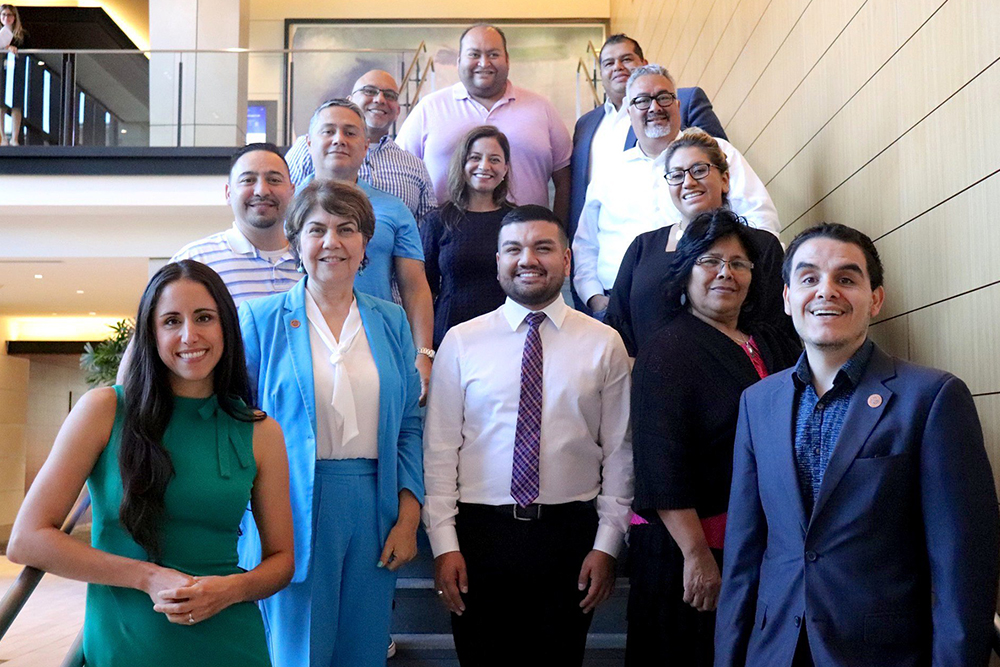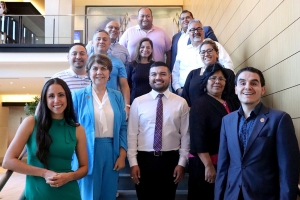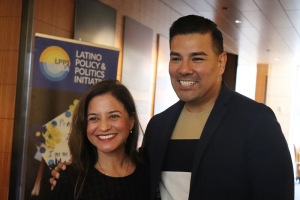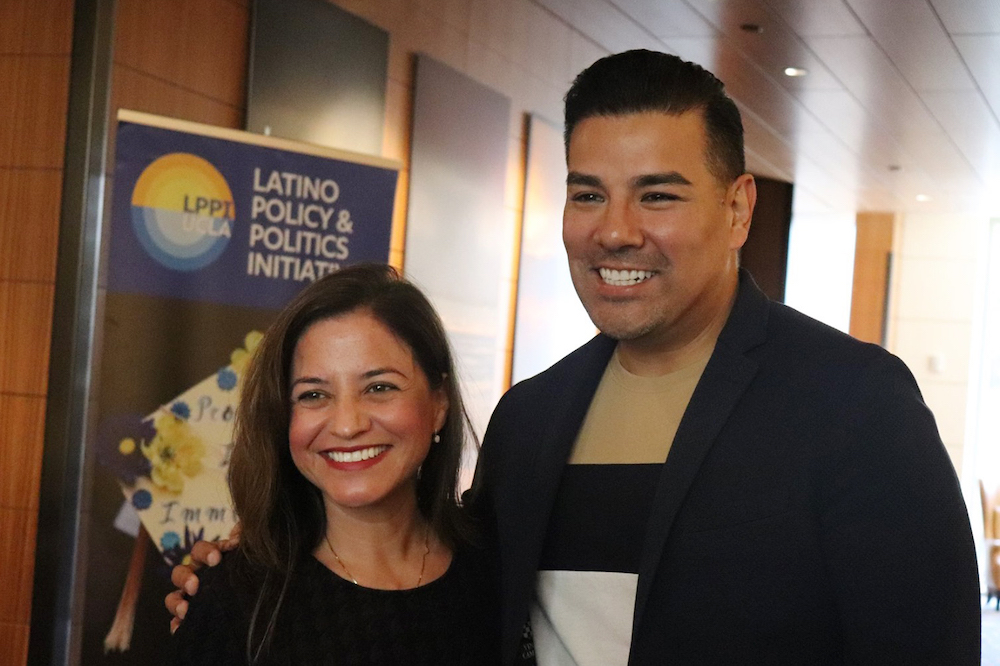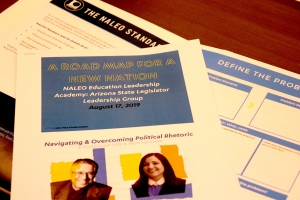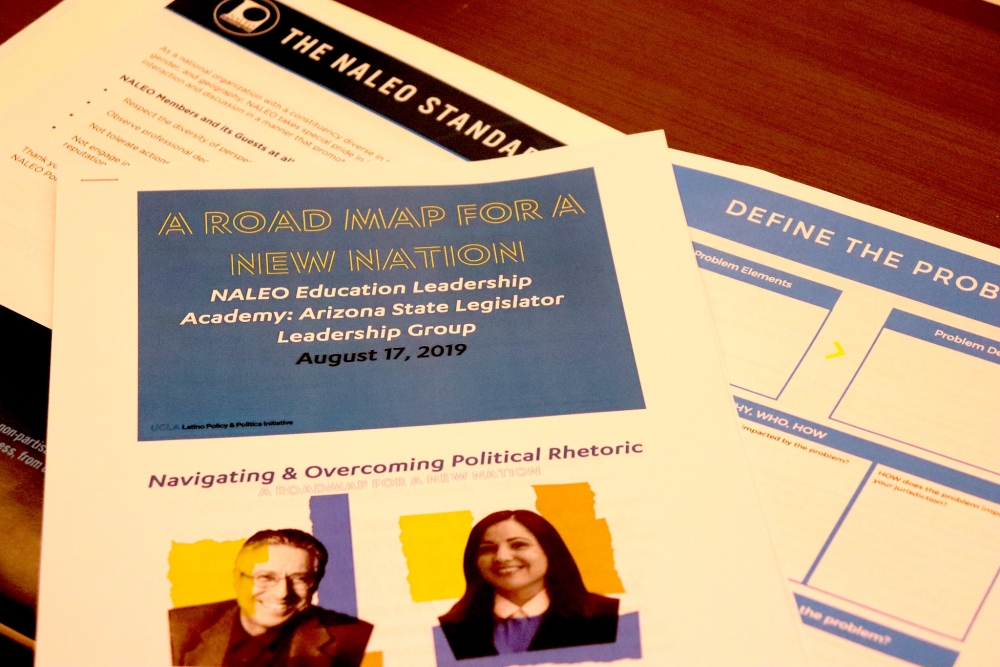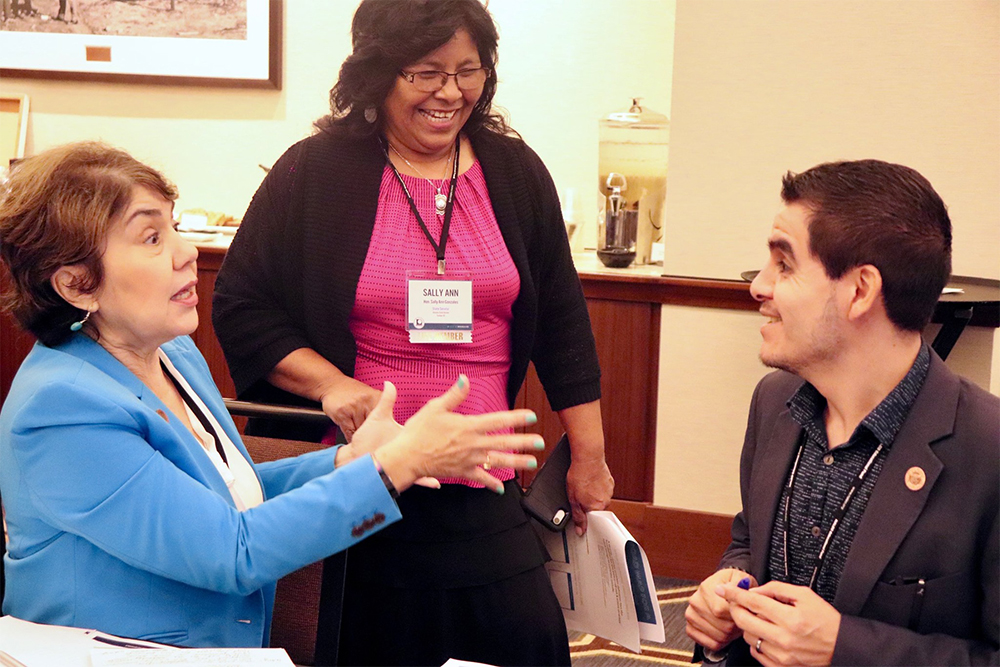By Stan Paul
Yeheskel “Zeke” Hasenfeld, a member of UCLA’s Social Welfare faculty for more than three decades, passed away Feb. 28, 2019, after a battle with cancer. He was 81.
Hasenfeld joined the faculty in 1987 following a post as professor and associate dean at the University of Michigan’s School of Social Work. Upon retirement in 2014, Hasenfeld was appointed as a Distinguished Research Professor Emeritus “to reflect his ongoing and continued engagement with his students and with our department,” said Laura Abrams, chair of UCLA Luskin Social Welfare.
“Zeke was a true friend, colleague and mentor to our faculty and students, which is how he will be remembered. I know I speak for all of us in expressing deep sorrow about his passing,” Abrams said in a message to the UCLA Luskin community.
Hasenfeld was a pioneer in the study of human service organizations, earning the Society for Social Work and Research Distinguished Career Achievement Award in 2011. In 2013 he was inducted as a fellow in the American Academy of Social Work and Social Welfare. In February 2019, Hasenfeld was included on a list of the 100 most influential contemporary social work faculty by the Journal of Social Service Research.
“Zeke published many influential books and award-winning articles and was recently noted as one of the top 100 scholars of our time in the social work field,” Abrams said.
During his long research and teaching career, Hasenfeld focused on the dynamic relations between social welfare policies, organizations that implement policies and the people who use their social services. His research also looked at the implementation of welfare reform, as well as changes in the organization of welfare departments, and how those changes have affected the relations between workers and recipients. Recent work focused on the role of nonprofit organizations in the provision of social services.
Following his retirement, Hasenfeld volunteered with the American Civil Liberties Union, working on issues related to homelessness and advocating for the rights of people with disabilities.
Among his publications was the classic and best-selling text, “Human Services as Complex Organizations,” which was updated and republished in a second edition in 2018.
In 2017, Hasenfeld received the Frank R. Breul Memorial Prize from the University of Chicago’s publication Social Service Review for research on professional power relations in social work. Hasenfeld shared the prize with co-author Eve Garrow MSW ’03 Ph.D. ’08. Hasenfeld and Garrow married in 2018.
Hasenfeld, who was born in Israel, earned his undergraduate degree in sociology and economics in 1960 from Hebrew University at Jerusalem. He went to Rutgers University School of Social Work on a Fulbright Scholarship and received his MSW in 1962. In 1970, Hasenfeld earned his Ph.D. in social work and sociology from the University of Michigan and joined the faculty of the School of Social Work there following a yearlong teaching stint at the Hebrew University in Jerusalem. He also held an appointment in the University of Michigan’s Department of Sociology.
“Zeke was a dear colleague and a good friend,” said Fernando Torres-Gil, UCLA Luskin professor of social welfare and public policy. “He and I had much in common — our interest in organizational behavior and community theory, commitment to doctoral students and, in a most personal manner, being polio survivors,” added Torres-Gil, who also serves as director of the Center for Policy Research on Aging at UCLA Luskin.
Torres-Gil recalled Hasenfeld’s “steadfastness and courage that inspired me to stay involved,” adding that Hasenfeld used his adversity to enlighten others about important policy and intellectual issues. “His iconic humor gave one pause, no matter how serious or how funny. I will miss Zeke for all this and for his dedication to the academic enterprise and to aging gracefully with a disability,” Torres-Gil said.
Hasenfeld is survived by Garrow, his wife; daughters Rena Garland and Rachel White from his first marriage to Helen Hasenfeld; and granddaughters Cassie White, Allie White and Summer Garland.
In lieu of flowers, memorial donations in his name may be made to the American Civil Liberties Union of Southern California, 1313 W. 8th St., Los Angeles, CA 90017.
